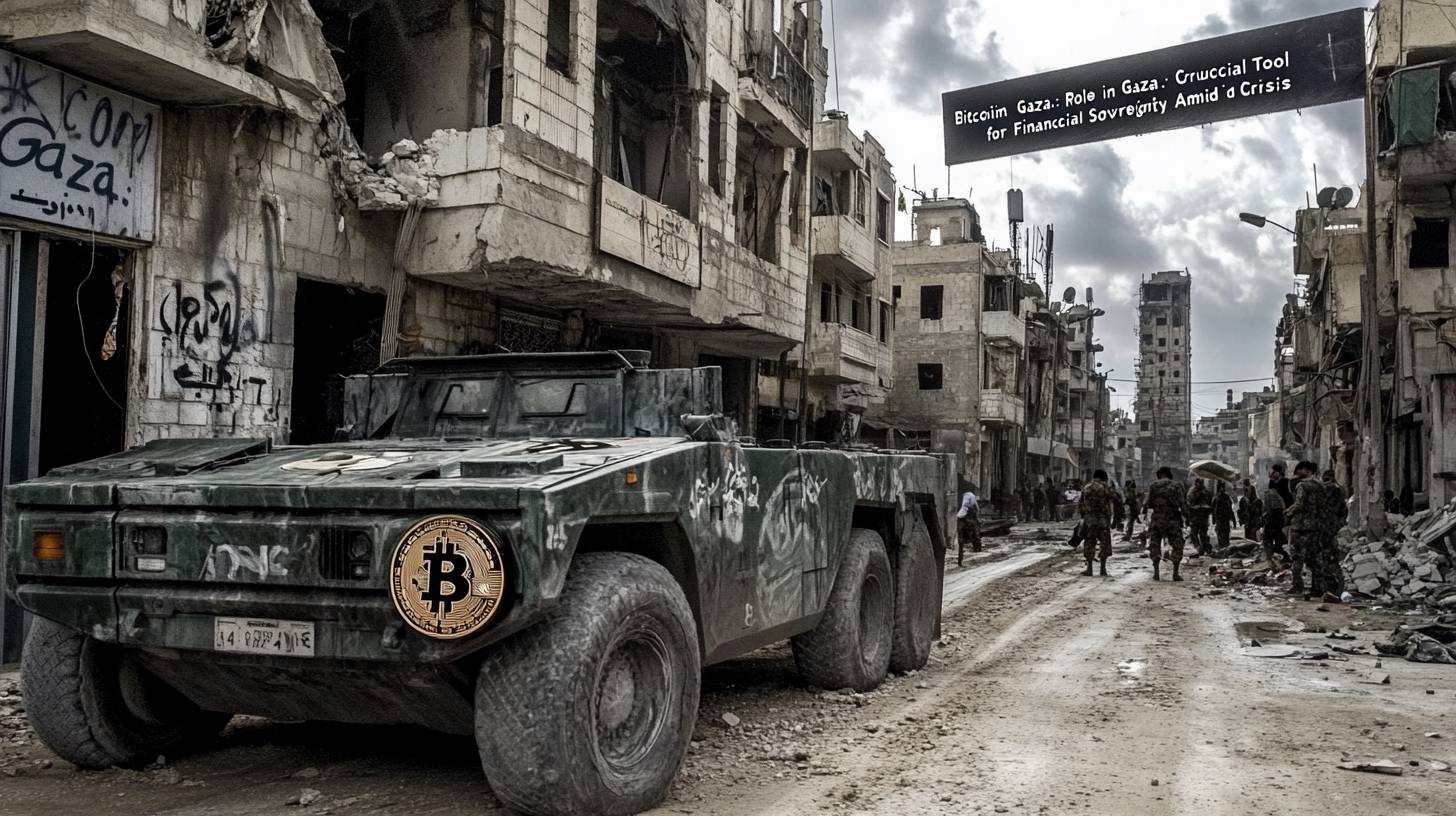
bitcoin as a vital resource in Gaza
Source: bitcoinmagazine.com
This implies that individuals in Gaza can receive contributions and financial assistance from around the world without needing to depend on intermediaries who might obstruct or confiscate their funds. It’s a straightforward, peer-to-peer network that permits people to transfer money without interference. And due to the borderless nature of Bitcoin transactions, the location of the sender or receiver is irrelevant. Whether you’re in Australia, the US, or Europe, sending Bitcoin to someone in Gaza can be accomplished in just a few clicks.
Consider the story of Yusef Mahmoud, a taxi driver who has emerged as a local icon. Prior to the conflict, he was merely an everyday man trying to earn a living. But now, empowered by Bitcoin, he has managed to gather contributions from across the globe to procure food and water for thousands in Gaza. This is a potent illustration of how Bitcoin enables individuals to skip over traditional financial systems and offer genuine, practical assistance to those in dire need.
In contrast to traditional currencies, Bitcoin is governed by a decentralised network. There is no central authority that can freeze accounts, block transactions, or enforce limitations. This characteristic renders it an ideal choice for those residing under tyrannical governments or in conflict zones such as Gaza. When banks decline to process transactions or governments impose restrictions, Bitcoin stays accessible and open to anyone connected to the internet.
overcoming financial barriers with bitcoin
For numerous residents in Gaza, this distinction could mean the difference between survival and despair. They depend on Bitcoin to access the money required to purchase food, water, and other crucial necessities. In its absence, they would be left entirely disconnected from the global economy, struggling to survive in a conflict-ridden area. Bitcoin is facilitating a method for individuals to support one another, even as the rest of the world has turned away.
This is especially crucial in a region like Gaza, where international assistance is frequently delayed or hindered by political dynamics. Even when aid organisations succeed in delivering supplies to the area, the process is sluggish and fraught with challenges. However, with Bitcoin, there’s no necessity to seek consent from a bank or government. The funds can be transmitted immediately, allowing the recipient to purchase anything they require—be it food, water, or medical necessities.
In an environment where all other alternatives have been stripped away, Bitcoin is demonstrating its significance as a key asset for survival. It’s not solely about speculation or investment—it’s about individuals utilizing technology to seize control of their circumstances amidst extreme adversity. For the people of Gaza, Bitcoin is more than a mere currency—it symbolizes hope.
Bitcoin’s capacity to overcome financial barriers stands out as one of its most revolutionary aspects. In Gaza, where conventional banking systems have been weaponised against the community, Bitcoin provides a means to evade these constraints. The global financial system, led by centralised establishments, has long been employed as a mechanism of oppression. Through sanctions, embargoes, or outright blockades, governments and banks can effectively sever entire populations from the global economy. Yet, Bitcoin alters that narrative.
In Gaza, Bitcoin has transcended its role as merely a digital currency—it has become an essential resource. With the area shut off from conventional financial systems, individuals are increasingly relying on Bitcoin as their sole means of subsistence. The global banking infrastructure has essentially forsaken them, leaving the people of Gaza unable to obtain international aid or charitable contributions through standard channels. However, Bitcoin is indifferent to borders, governments, or sanctions. It operates on a decentralised network, enabling anyone, anywhere, to send and receive funds without needing approval from a bank or authority.
In Australia, where we enjoy relatively unhindered financial liberties, it’s easy to overlook the privilege of sending and receiving funds without constraints. Yet for those in Gaza, Bitcoin represents a lifeline. It serves as a method to navigate around the financial barriers that prevent them from accessing the essential resources for their survival. And for those of us wishing to assist, it ensures our contributions genuinely reach the individuals who need them, free from interception or delay by intermediaries.

